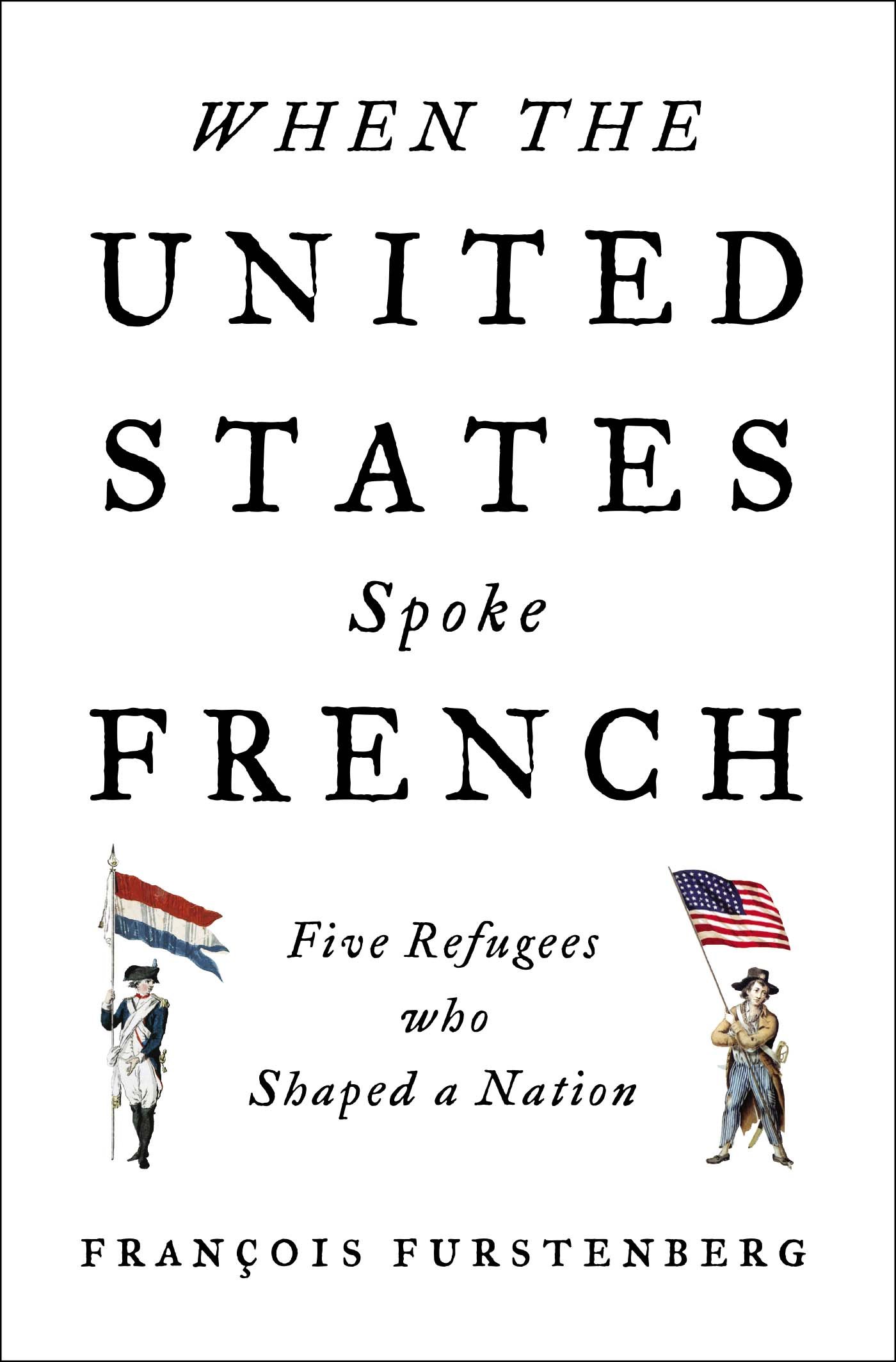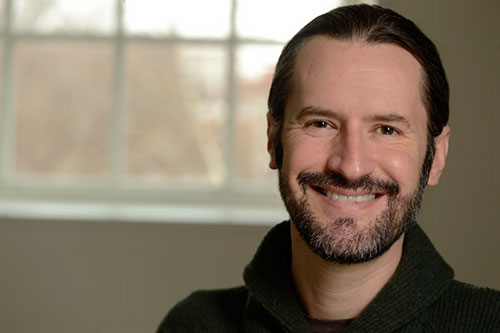When the United States Spoke French
By François Furstenberg

When the United States Spoke French: Five Refugees Who Shaped a Nation
By François Furstenberg
512 pp., The Penguin Press
$36.00
In 1789, as the French Revolution shook Europe to the core, the new United States was struggling for survival in the face of financial insolvency and bitter political and regional divisions. “When the United States Spoke French” explores the republic’s formative years from the viewpoint of a distinguished circle of five Frenchmen taking refuge in America.
When the French Revolution broke out, these men had been among its leaders. They were liberal aristocrats and ardent Anglophiles, convinced of the superiority of the British system of monarchy and its constitution. They also idealized the new American republic, which seemed to them an embodiment of the Enlightenment ideals they celebrated. But soon the Revolutionary movement got ahead of them, and they found themselves chased across the Atlantic.
François Furstenberg follows these five men — Napoleon’s future foreign minister, Charles-Maurice de Talleyrand-Périgord; theorist-reformer Rochefoucauld, the duc de Liancourt; statesman and army officer Louis-Marie Vicomte de Noailles; lawyer and writer Médéric Louis Élie Moreau de Saint-Méry; and philosopher, abolitionist, and politician Constantin-François Chasseboeuf, Comte Volney — who left their homes and families in France, crossed the Atlantic, and landed in Philadelphia. The city was then America’s capital, its principal port, and by far its most cosmopolitan city, in addition to being the home of the wealthiest merchants and financiers.
The book vividly reconstructs their American adventures, following along as they integrated themselves into the city and its elite social networks, began speculating on backcountry lands, and eventually became enmeshed in Franco-American diplomacy. Through their stories, we see some of the most famous events of early American history in a new light, from the diplomatic struggles of the 1790s to the Haitian Revolution to the Louisiana Purchase in 1803.
By the end of this period, the United States was on its way to becoming a major global power. Through this small circle of men, we find new ways to understand the connections between US and world history and gain fresh insight into American history’s most critical era. Beautifully written and brilliantly argued, “When the United States Spoke French” offers a fresh perspective on the tumultuous years of the young nation, when the first great republican experiments were put to the test.
Scroll down for our Q&A with François Furstenberg, a finalist for the 2015 George Washington Book Prize.
 Grateful American™ Foundation: What inspired you to write this book?
Grateful American™ Foundation: What inspired you to write this book?
François Furstenberg: I began thinking about something connecting French and American history when I moved to Montreal for my first job in 2003. My training had been in American history without really any French focus. My dissertation, later my first book, was on George Washington’s image in the nineteenth century, and on its connections to slavery. I approached these as pretty US-centric issues. Two things pushed me toward the research I eventually undertook.
The first was my new home. I was living in Montreal — in a part of North America that still speaks French — and teaching in French. I thought that looking at French connections in the early republic would be a good way to connect my research to the interests of my students and colleagues.
The second motivation was the wealth of wonderful new scholarship coming out on what historians were calling the Atlantic World. Amazing studies were coming out showing all the ways that colonial American history and the history of the early United States were embedded in a larger Atlantic history. They were showing how provincial many historians had been in framing our studies around the nation. And so this work exerted a real influence on my own historical thinking.
Grateful American™ Foundation: What are the three big lessons you hope readers will take away from it?
François Furstenberg: It’s pretty hard for me to say. The book is out there now, and people will take what they want. Indeed, one of the great pleasures of writing a book is discovering how people read that book in really unexpected ways.
But if I had my pick, I guess I would hope that readers might come away with a different portrait of the early years of the American republic. I’d want them to think less in the ways that so much of this history is framed — as a story about great Founding Fathers — and more about the ways that our history emerged out of and was intimately intertwined with bigger struggles and fights, including those over the French and Haitian revolutions. I’d want readers to understand the impossibility of separating our history from the history of Europe and the Caribbean.
I might also hope that readers get a more contingent sense of the early American republic. It’s so hard for us now — in this moment when the United States is such a dominant global power — to understand how fragile the nation was back then, how close it was to disappearing completely. The emergence of this puny set of states hovering along the Atlantic coast into a continental and then global power was as much a matter of luck and coincidence as it was anything else.
And finally, I think I’d like for readers to get a sense of the connections between different historical fields; how political history connected to diplomatic history to economic history to family history to material culture, portraiture, and more.
Grateful American™ Foundation: When was the moment in your childhood or life when you developed a passion for American history? And what do you think can be done to inspire more kids to get excited about learning about the past?
François Furstenberg: I guess I’d be hard-pressed to remember a single moment. I think of it more as a growing interest over time. I remember being a big reader when I was a kid. My grandfather (my mother’s father) was a historian, which might have had some influence. My teachers in college were a big influence on me.
As for inspiring kids, too many people get to college thinking that history is just about memorizing lists of facts and dates. I once told a college professor of mine that I doubted my talents in history. “I can’t even name all the presidents,” I explained by way of illustration.
He had no patience for my concerns. “Why would you ever want to do that?” he asked me. “You can always look that up. That’s not what history is about.” (I’m paraphrasing here of course. Anytime you see a conversation quoted from memory, know that the exact words are made up. There is a free historical lesson for your readers.)
I try to encourage students to think more about problems in history. About how to read texts and criticize them. About causality and contingency. About the importance of imaginative reconstructions of the past. About the ways that American history — indeed, probably all history — is made up of this fascinating commingling of horror and inspiration. I like to think that can be more inspirational than rote learning.
Grateful American™ Foundation: If you win the Washington Book Prize, what will you do with the prize money — and what will be your goal to accomplish during your year of being the reigning Prize-winner?
François Furstenberg: Well, I’ve been a finalist and lost twice now, so by my count that puts me $100,000 in the hole. When you add the booming stock market since I was last a finalist, in 2007, along with the really smart investments I would surely have made in Apple stock and Facebook before it went public, I’m probably somewhere just shy of half a million dollars. So that’ll get you a lot.
The first thing that jumps to mind is a really nice summer house. Maybe some waterfront property on the Eastern Shore near Washington College? Or maybe I could have bought something along the Potomac and made myself George Washington’s neighbor? Or maybe I could have built a nice big McMansion across the Potomac, rising above the lovely woods on the Maryland side, something that millions of tourists at Mount Vernon could admire from Washington’s veranda.
Third time’ll be a charm I’m sure, and then I’ll get started on those plans.
And the results are in!
In addition to Francois Furstenberg‘s “When the United States Spoke French,” be sure to check out the books that were also up for the 2015 prize.




